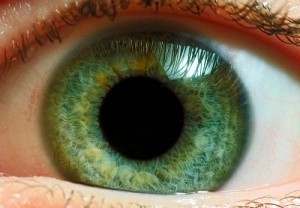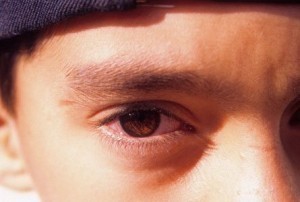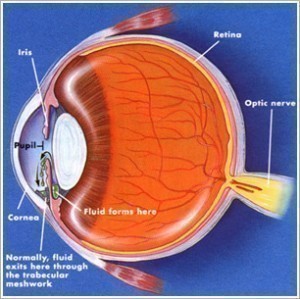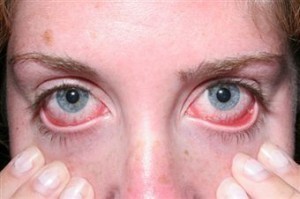What Causes Eye Twitching?
Definition
Eye Twitching, or Blepharospasm, is involuntary eyelid twitching. It is also referred to as an eye muscle spasm. The term blepharospasm really applies to any abnormal blinking or involuntary eye twitching of the eyelids caused by uncontrolled contractions of the muscles around the eyelids.
One type of blepharospasm is Benign Essential Blepharospasm (BEB) a blinking disorder that is not life threatening and has an unknown causes. Other types of blepharospasm may be associated with dry eyes, Tourette’s syndrome or other neurological problems and may be more serious. In general, patients experiencing blepharospasm have normal eyes and any disturbance in their vision is due to the forced closure of the eyelids. BEB should not be confused with ptosis or a drooping of the eyelids that may be caused by a weakness or paralysis of the muscle in the upper eyelid. Minor eye twitches usually do not worsen. If they do worsen or persist, it is important to seek the advice of an eye care professional.
Causes of eye twitching
Blepharospasm usually starts with abnormal or excessive blinking that is accompanied by general eye irritation. Early on, the excessive blinking may only occur as a result of being exposed to bright lights, being tired or if you are under a great deal of stress. The frequency of the eye spasms may increase throughout the day. Sometimes the eye spasm may resolve during sleep and not even occur after a sound night’s sleep until you have been awake for many hours. As the condition worsens, the spasms tend to get stronger and may result in the eyelids being tightly shut for a few hours at time making it impossible for the person to see.
Most often, eyelid spasms are associated with or prolonged use of alcohol and caffeine, fatigue, irritation of the eye surface or inner eyelids, lack of sleep, physical exertion and smoking.
Chronic, uncontrollable eyelid movement affecting both eyes is known as benign essential blepharospasm. Although its exact cause is unknown, the following conditions often proceed or accompany benign essential blepharospasm:
Blepharitis affects the skin of the eyelids, and it usually involves the part of the eyelid where the eyelashes grow (lid margins). Commonly blepharitis occurs when tiny oil glands located near the base of the eyelashes malfunction. When these oil glands malfunction, bacterial overgrowth can result, leading to inflamed, irritated and itchy eyelids.
Very rarely, eye twitch may be a sign of certain brain and nerve disorders. When it is, it’s almost always accompanied by other signs and symptoms. Brain and nerve disorders that can cause eye twitch include:
- bell’s palsy
- Benign essential blepharospasm
- Dystonia
- Parkinsonism
- Side effects of drugs, particularly medications used to treat epilepsy and psychosis
- Tourette syndrome






